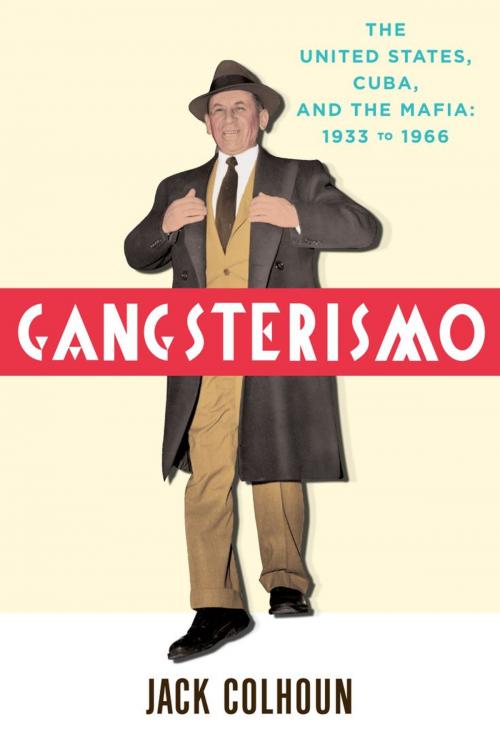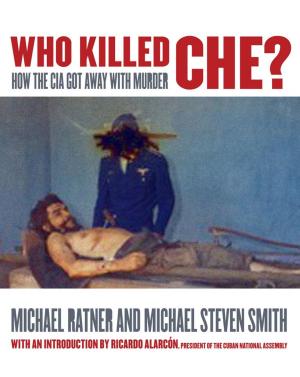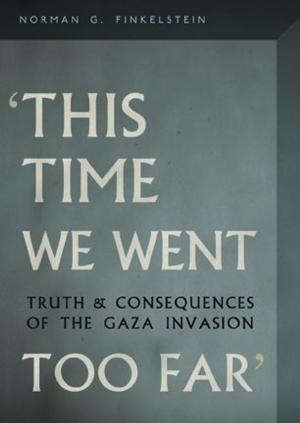Gangsterismo
The United States, Cuba and the Mafia, 1933 to 1966
Fiction & Literature, Literary Theory & Criticism, Caribbean & West Indian, Nonfiction, History, Americas, United States, 20th Century| Author: | Jack Colhoun | ISBN: | 9781935928904 |
| Publisher: | OR Books | Publication: | April 30, 2013 |
| Imprint: | Language: | English |
| Author: | Jack Colhoun |
| ISBN: | 9781935928904 |
| Publisher: | OR Books |
| Publication: | April 30, 2013 |
| Imprint: | |
| Language: | English |
Gangsterismo is an extraordinary accomplishment, the most comprehensive history yet of the clash of epic forces over several decades in Cuba. It is a chronicle that touches upon deep and ongoing themes in the history of the Americas, and more specifically of the United States government, Cuba before and after the revolution, and the criminal networks known as the Mafia.
The result of 18 years’ research at national archives and presidential libraries in Kansas, Maryland, Texas, and Massachusetts, here is the story of the making and unmaking of a gangster state in Cuba. In the early 1930s, mobster Meyer Lansky sowed the seeds of gangsterismo when he won Cuban strongman Fulgencio Batista’s support for a mutually beneficial arrangement: the North American Mafia were to share the profits from a future colony of casinos, hotels, and nightclubs with Batista, his inner circle, and senior Cuban Army and police officers. In return, Cuban authorities allowed the Mafia to operate its establishments without interference. Over the next twenty-five years, a gangster state took root in Cuba as Batista, other corrupt Cuban politicians, and senior Cuban army and police officers got rich. All was going swimmingly until a handful of revolutionaries upended the neat arrangement: and the CIA, Cuban counterrevolutionaries, and the Mafia joined forces to attempt the overthrow of Castro.
Gangsterismo is unique in the literature on Cuba, and establishes for the first time the integral, extensive role of mobsters in the Cuban exile movement. The narrative unfolds against a broader historical backdrop of which it was a part: the confrontation between the United States and the Cuban revolution, which turned Cuba into one of the most perilous battlegrounds of the Cold War.
Gangsterismo is an extraordinary accomplishment, the most comprehensive history yet of the clash of epic forces over several decades in Cuba. It is a chronicle that touches upon deep and ongoing themes in the history of the Americas, and more specifically of the United States government, Cuba before and after the revolution, and the criminal networks known as the Mafia.
The result of 18 years’ research at national archives and presidential libraries in Kansas, Maryland, Texas, and Massachusetts, here is the story of the making and unmaking of a gangster state in Cuba. In the early 1930s, mobster Meyer Lansky sowed the seeds of gangsterismo when he won Cuban strongman Fulgencio Batista’s support for a mutually beneficial arrangement: the North American Mafia were to share the profits from a future colony of casinos, hotels, and nightclubs with Batista, his inner circle, and senior Cuban Army and police officers. In return, Cuban authorities allowed the Mafia to operate its establishments without interference. Over the next twenty-five years, a gangster state took root in Cuba as Batista, other corrupt Cuban politicians, and senior Cuban army and police officers got rich. All was going swimmingly until a handful of revolutionaries upended the neat arrangement: and the CIA, Cuban counterrevolutionaries, and the Mafia joined forces to attempt the overthrow of Castro.
Gangsterismo is unique in the literature on Cuba, and establishes for the first time the integral, extensive role of mobsters in the Cuban exile movement. The narrative unfolds against a broader historical backdrop of which it was a part: the confrontation between the United States and the Cuban revolution, which turned Cuba into one of the most perilous battlegrounds of the Cold War.















